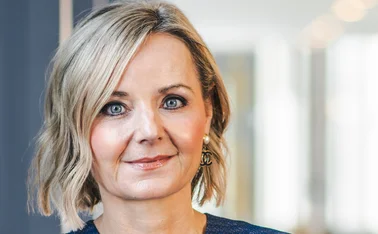
The Co-operative has done a u-turn over insurance sale - but for how long?

The news that the Co-operative Group has decided not to sell its insurance business after putting it in the shop window in March last year might have caught some on the hop.
But the longer the process dragged on, the more likely one of two scenarios became: first, a sale at a depressed price to a fellow mutual or friendly face; second, the business being pulled off the ‘for sale' shelf.
Given the fact the bank's recent recapitalisation plan requires it to raise less cash than once envisaged, the second option became a more likely outcome in recent months, despite the likes of Legal & General being strongly linked with the sale around Christmas.
He added: "We received a significant amount of interest in the general insurance business, which reflects its potential."
However, a question remains despite the positive rhetoric: How committed are the group to the insurance arm? Because - and I may be being a bit cynical here - had the price been right, I suggest the conclusion might have been a lot different.
Maybe the precedent set by two other high profile insurance sale u-turns may offer some hints as to the Co-op's future prospects.
During that time, the UK insurance market changed quite dramatically with a perfect storm caused by the collapse of Independent Insurance and 11 September 2001 leading to a more positive rating environment.
At the time the French management gave its word to back the business for "at least five years".
It actually ended up with almost a decade's worth of support until wider problems at the parent lead to another sales process. One that ended up with Ageas being widely seen to have snapped up a bargain.
More recently, Royal Bank of Scotland ran a beauty parade for its insurance business in the wake of the banking crisis from spring 2008 until February 2009.
Again a raft of big names were linked with the business, before the group CEO Stephen Hester pulled the plug, declaring: "RBS Insurance benefits from a leading market position, strong cash generation and low capital requirements. It does not absorb funding or risk-weighted assets and is not closely connected to the credit cycle.
"It is an impressive, well-run business with great people and excellent customer franchises. It can play an important role as we return the RBS group to standalone strength."
However, within months, European Union regulators ordered the bank to sell the insurance business, as a condition for billions in state aid.
Today Direct Line stands alone from RBS as a separately listed business.
Two different u-turns that have ultimately ended in the same result: the disposal of a business that had been for sale, and then not for sale, and then ... you get the picture?
It is interesting Sutherland describes the Co-op insurance business as having "potential" because ultimately the fact the figures did not match the potential may have deterred suitors from matching the asking price.
Should that potential start to be fulfilled they may start knocking again. Should it fail to live up to that potential, then the group may cut its losses.
Last year Co-op Insurance reported its combined operating ratio had jumped from 104.4% in 2011 to 110.9% in 2012 , while pre-tax profits fell £3m for the full year from £32.3m in 2011. Gross written premium also fell to £555.7m in 2012 from £668.8m the previous year.
The business obviously needs some tender loving care to see it grow in both in terms of profit and GWP, and it will be interesting to see how it has fared in 2013 given the 'sale' cloud it has been under.
Ultimately, the closer the Co-operative Insurance business can get to a Groupama-type distance between the sale process and any questions about its future, the better chance it has of a bright independent future. Although if the turnaround is too dramatic, maybe the situation will be taken out of its hands again.
Only users who have a paid subscription or are part of a corporate subscription are able to print or copy content.
To access these options, along with all other subscription benefits, please contact info@postonline.co.uk or view our subscription options here: http://subscriptions.postonline.co.uk/subscribe
You are currently unable to print this content. Please contact info@postonline.co.uk to find out more.
You are currently unable to copy this content. Please contact info@postonline.co.uk to find out more.
Copyright Infopro Digital Limited. All rights reserved.
As outlined in our terms and conditions, https://www.infopro-digital.com/terms-and-conditions/subscriptions/ (point 2.4), printing is limited to a single copy.
If you would like to purchase additional rights please email info@postonline.co.uk
Copyright Infopro Digital Limited. All rights reserved.
You may share this content using our article tools. As outlined in our terms and conditions, https://www.infopro-digital.com/terms-and-conditions/subscriptions/ (clause 2.4), an Authorised User may only make one copy of the materials for their own personal use. You must also comply with the restrictions in clause 2.5.
If you would like to purchase additional rights please email info@postonline.co.uk








